One of Kathmandu’s most sacred Buddhist pilgrimage places is the Swayambhunath Temple. This ancient complex is built above a hillock, one of the main symbols of Nepalese heritage and spirituality. A massive spire with a golden spire on it carries the Buddha’s eyes in every direction, symbolising serenity, wisdom, and compassion. The syncretism of Hindu and Buddhist elements within the temple—including carved elements, magnificent carvings, hundreds of prayer wheels and flags flapping in the wind makes for an eclectic kind of beauty that continues to draw pilgrims and travellers from all over the world.
Quick Details About Swayambhunath Temple
Entry Fee: 200 NPR / ₹125
Swayambhunath Temple Address: BHAGANPAU 44600, Nepal
Swayambhunath Temple Timings: 24*7
How To Reach Swayambhunath Temple
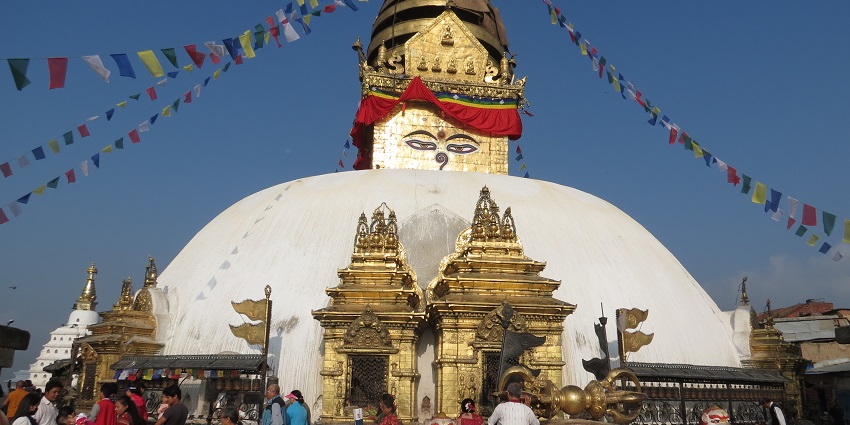
Photo: Hari Paudyel / Wikimedia Commons
Swayambhunath Temple Nepal can be reached easily by air, rail, or road, depending on your location.
By Air: Tribhuvan International Airport, around 10 km away from the temple is the nearest airport. After that, one can hire a taxi to reach the temple.
By Rail: Raxaul Junction near the India-Nepal border is the nearest railway station. Tourists can hire taxis from there or use local transportation services like buses to reach the place and proceed to the temple.
By Road: One can easily access the temple through famous road links in Kathmandu. Several private and local transport services, including taxis and buses, are available for this route.
Places To Visit Near Swayambhunath Temple
Tourists can enjoy many additions with this list of famous places near the temple:
1. Kathmandu Durbar Square
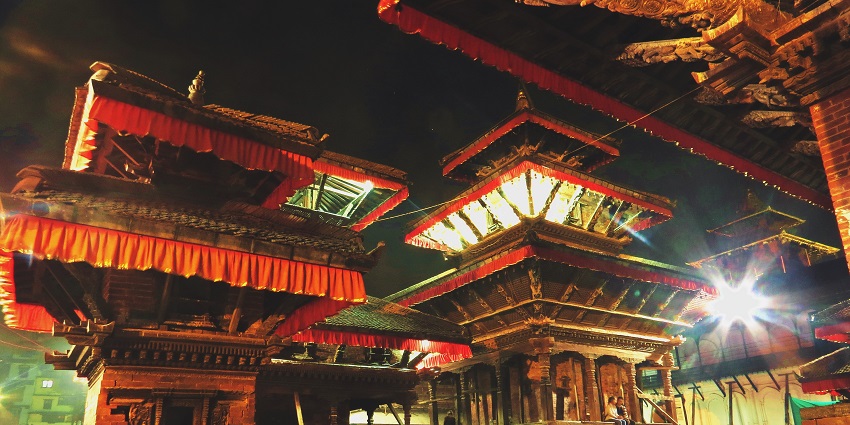
Photo: Harry Paudyal / Wikimedia Commons
Located about 4 km away from the temple, Kathmandu Durbar Square is a UNESCO World Heritage site that reflects the rich history and architecture of Nepal. It used to serve as a royal palace for both the Malla kings and the Shah dynasty, in which several palaces, courtyards, and temples date as far back as the 12th century. The artistic tradition of the town is reflected in its exquisitely designed, carved wood doors and windows, stone sculptures, and pagoda-image buildings. Notable monuments within the square include Taleju Temple, one of the oldest and tallest in the square.
Timings: 24*7
Entry Fee: NPR 1,000 / ₹625 for foreign nationals and NPR 150 / ₹94 rupees for SAARC nationals
Suggested Read: Guide To Makalu Barun National Park
2. Pashupatinath Temple
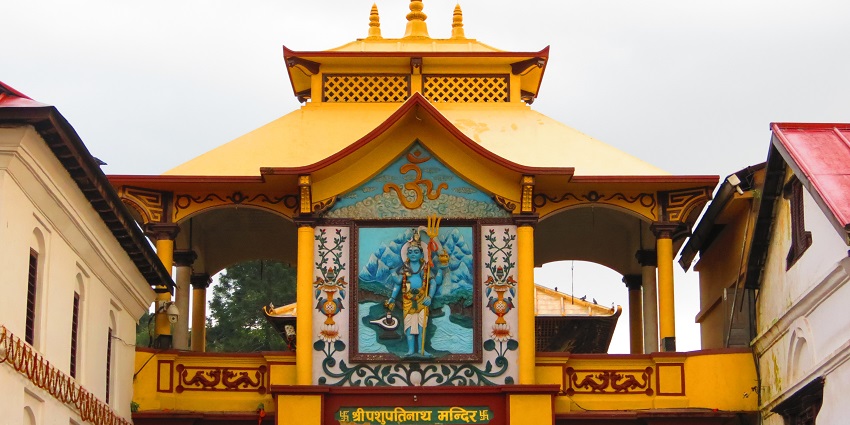
Photo: Harry Paudyal / Wikimedia Commons
The main temple is gilded-roofed and silver-doored, representing traditional Nepali pagoda-style architecture. One can view daily rituals being performed from cremation rites on the Ghats of the Bagmati River, which hold immense spiritual value. There are several small shrines, ashrams, and ghats around, giving the place an extraordinarily peaceful atmosphere. This temple is especially famous for its evening aartis witnessed in scintillating light and music shows, thus drawing huge tourists and other devotees.
Timings: 4 AM – 9 PM
Entry Fee: NPR 1,000 / ₹625 for foreign nationals, free for SAARC nationals
3. Boudhanath Stupa
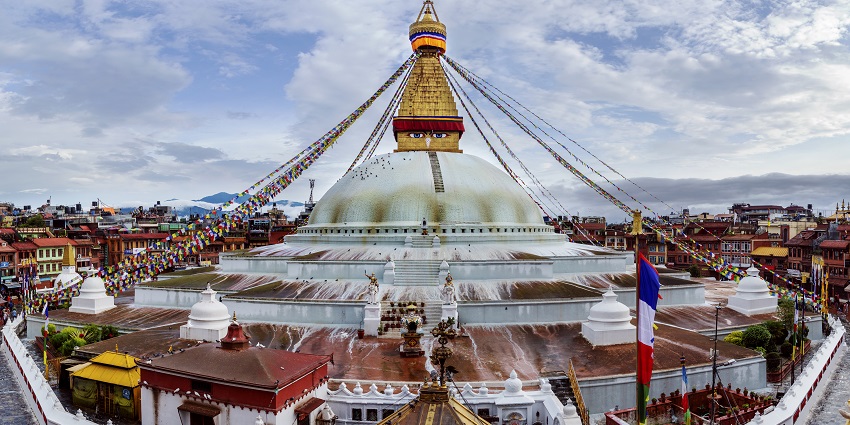
Photo: Bijay Chaurasia / Wikimedia Commons
Located around 7 km from the temple, the Boudhanath Stupa is undoubtedly one of the world’s largest stupas that holds significance for Tibetan Buddhism in Nepal. The large mandala makes it one of the biggest spherical stupas in the world. Moreover, it is featured on the UNESCO World Heritage list. Flung with colourful prayer flags, small stupas, and monasteries all around, it gives a highly vibrant and spiritual touch. The area around Boudhanath is also known for its Tibetan shops, cafes, and restaurants.
Timings: 24*7
Entry Fee: NPR 400 / ₹250 for foreign nationals and NPR 100 / ₹63 for SAARC nationals
Suggested Read: Guide To Royal Chitwan National Park Nepal
4. Garden Of Dreams
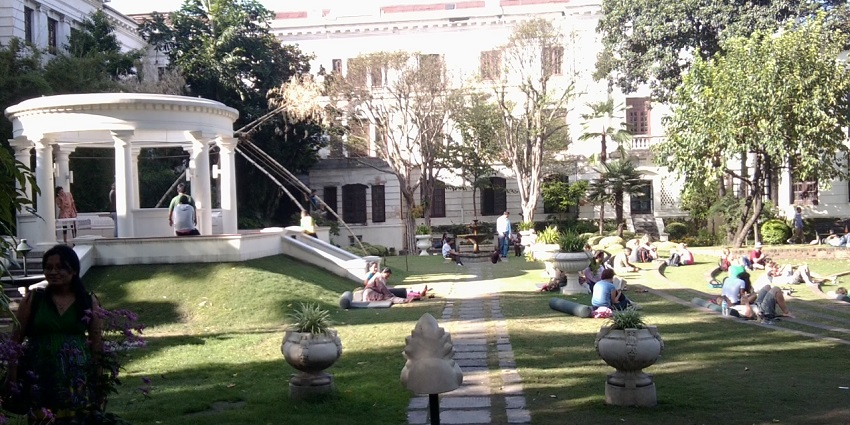
Photo: Krish Dulal / Wikimedia Commons
Situated about 5 km from the temple, the Garden of Dreams lies in the heart of Kathmandu as an admirable renovation of a neoclassical Garden. With European-style buildings, fountains, pergolas, and pavilions from the 1920s, it has a wide variety of flora that provides tranquillity from the noise and pollution of the city. It is a beautiful garden for taking a leisurely walk. There are quiet nooks with seats where one can sit down and read a book or simply relax and enjoy a picnic.
Timings: 6 AM – 6 PM
5. Thamel
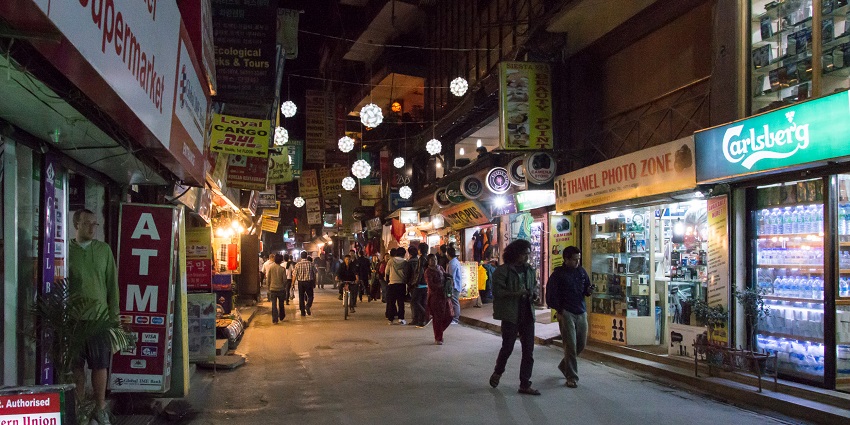
Photo: Sergey Ashmarin / Wikimedia Commons
Lying around 4 km away from the temple, Thamel is a noisy tourist centre of Kathmandu city. Famous for its narrow, maze-like streets hosting hundreds of shops, restaurants, and bars, it creates an environment for backpackers and adventure lovers. Shopping varieties such as gear shops, handicraft shops, factory outlets, and numerous local or international-brand shops offer trekking gear, Nepalese handicrafts, and souvenirs. People can explore numerous aesthetic cafes near the temple known for their delicious food items.
Timings: 24*7
Suggested Read: Shiva Temples In Nepal For A Blissful Spiritual Experience
Where To Stay
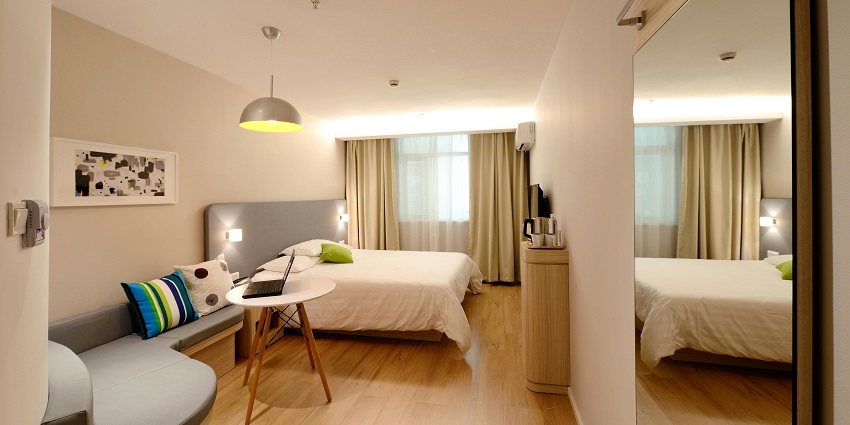
Photo: Pixabay / Pexels / Image For Representation Only
Travellers can consider staying in hotels near the temple. A few places near the temple are Hotel Vajra, The Dwarika’s Hotel, and Thamel House Hotel. These places provide outstanding facilities and ensure that the guests enjoy a comfortable stay.
Where To Eat
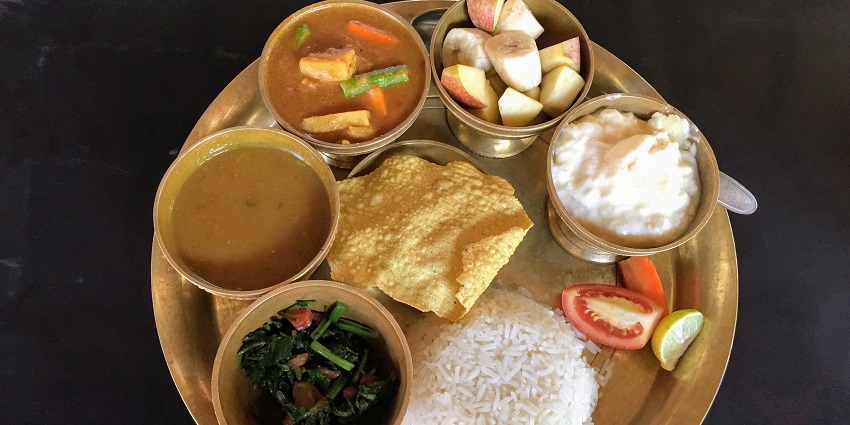
Photo: Subhashish Panigrahi / Wikimedia Commons
Travellers can choose from the varied options at Café De Stupa, Nirvana Café, and Swayambhu Ethnic Restaurant. These places offer a unique and satisfying dining experience. Tourists often try out Nepali food when they visit.
Suggested Read: Nepal Nightlife For Singles
Best Time To Visit
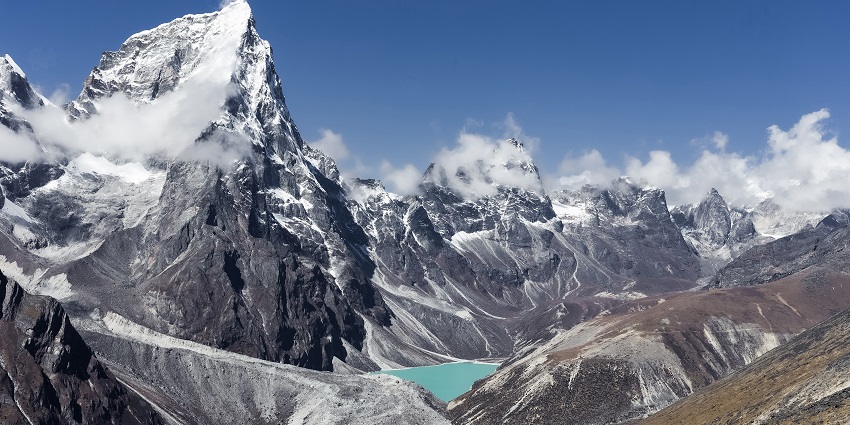
Photo: Photo Saurav / Wikimedia Commons
September to November and February to April are the best times to visit the temple. The climate is mild, and the tranquil surroundings are at their best. The hills bloom with flowers, and the clear sky above the Himalayas is blanketed in snow.
Tips For Travellers
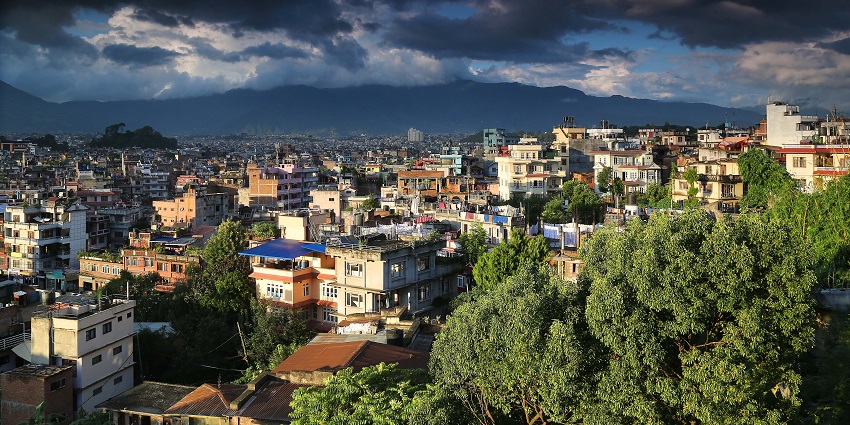
Photo: Rüdiger Wenzel / Wikimedia Commons
- Maintain decorum of the temple and dress modestly.
- Be careful and sensitive to the beliefs and local customs of the people in the temple.
- Adhere to the guidelines given by the authorities when clicking Swayambhunath Temple photos.
- Do not leave children unsupervised.
Suggested Read: Chitwan Jungle Safari
Swayambhunath Temple provides a unique blend of spirituality, history, and culture. The site is an absolute must-visit for anyone who wishes to witness the heritage and tranquillity of Nepal. To make the most of your visit, plan a trip to Nepal with TripXL and glide through the peaceful atmosphere. Don’t forget to carry a camera along with you to capture the breathtaking views.
Cover Photo: Bishworaj Poudel / Wikimedia Commons


 WhatsApp
WhatsApp
 Twitter
Twitter









